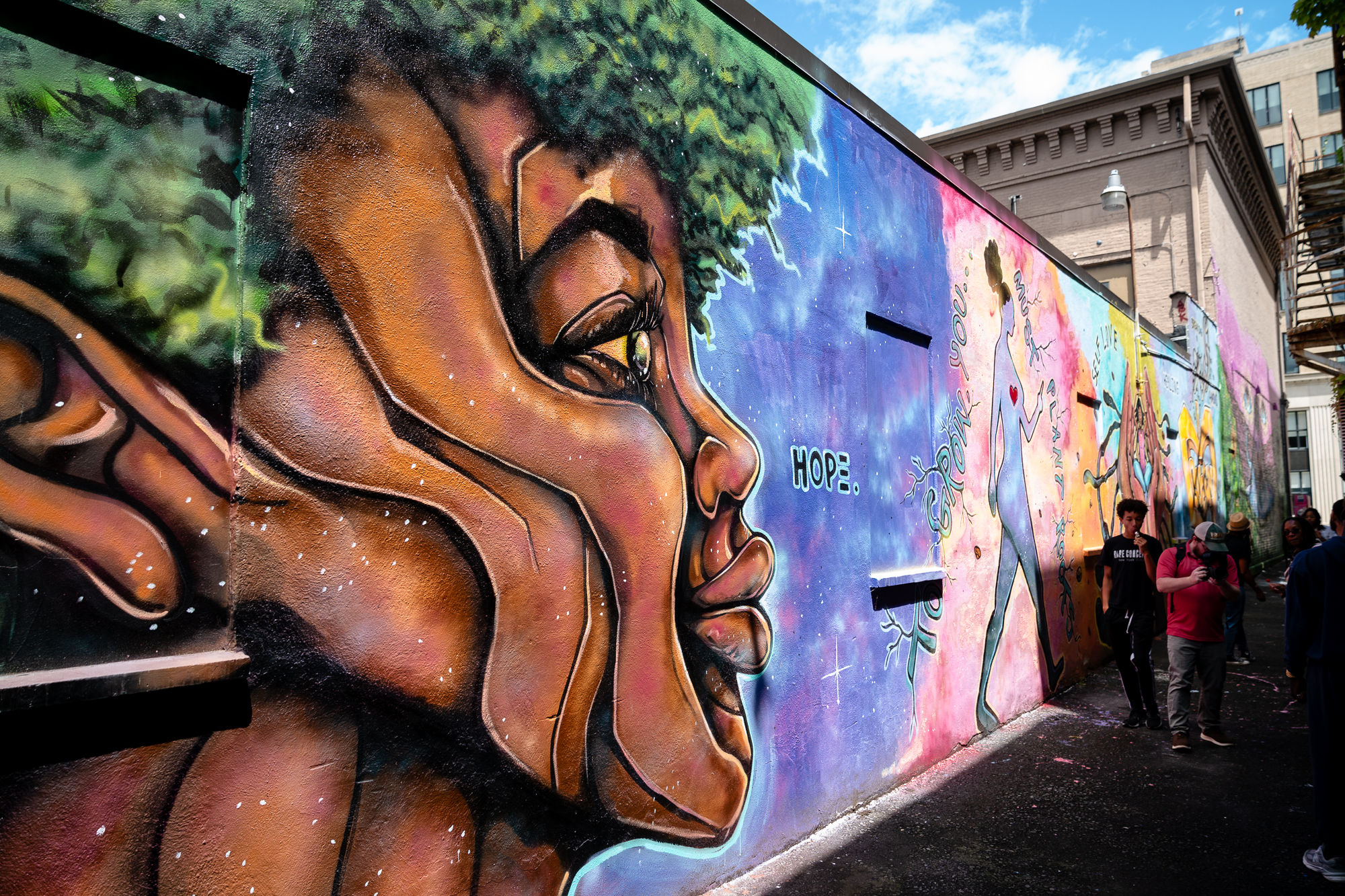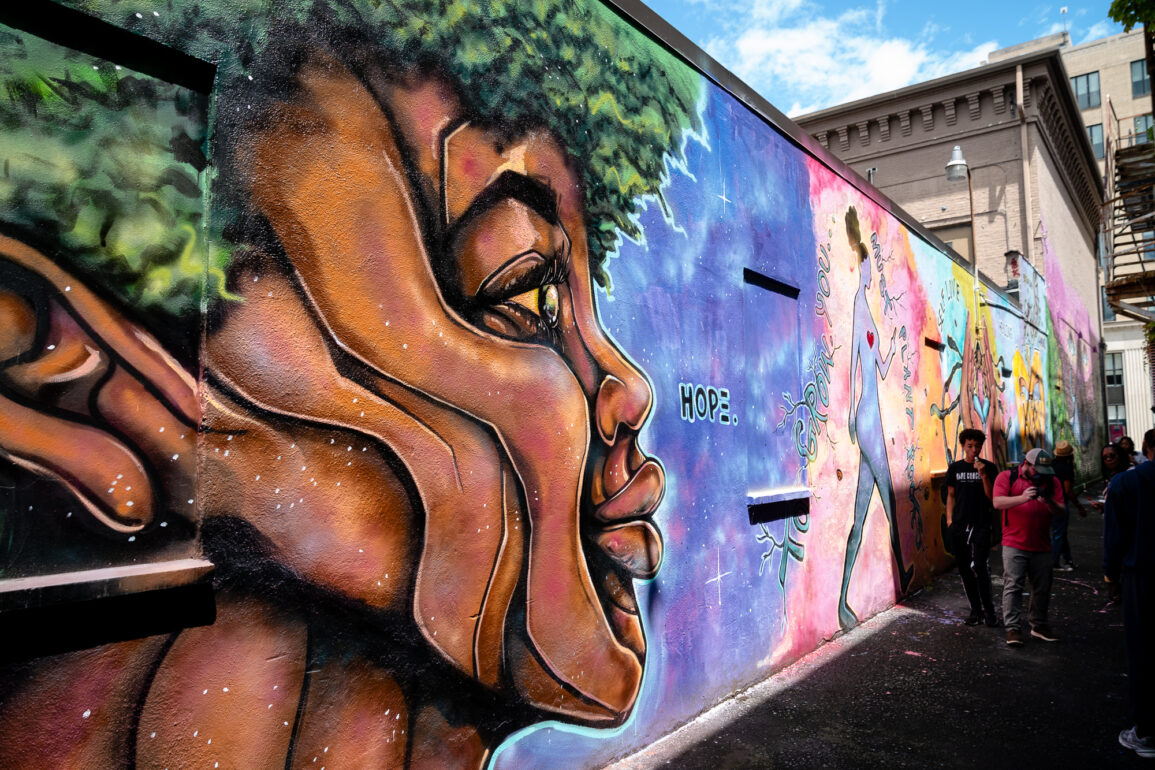
ITHACA, N.Y. — The City of Ithaca could join the small number of local governments in the U.S. with a reparations program for Black people living in Ithaca.
Common Council approved $50,000 in October to fund a study on reparations through an amendment to the city’s 2025 budget. The future study could be broad, delving into city “laws, policies, or institutional practices, or entrenched norms” that resulted in systemic racism and a “worse quality of life” for Black Ithacans, according to the reparations budget amendment’s description.
But exactly what the local study will call for, and what a potential reparations program would look like, will be shaped by the recommendations of a yet-to-be-appointed city working group.
Ithaca’s move to explore reparations follows the state’s lead. New York established a commission in December 2023 to examine the legacy of slavery and how it has impacted people currently living in New York. The commission will compose a report with recommendations to address the inequities that stem from the dark history in which New York State and the federal government were involved.
Alderperson Kayla Matos, who co-sponsored the proposal, said in an interview that a reparations program could take many shapes in the city. She said financial contributions to local Black institutions are one possibility, and direct-cash payment programs to individuals could be another option.
The city’s Black residents grew to and has hovered around 6.5% of Ithaca’s total population since the 1980s, according to demographic data presented by the city and the 2020 U.S. Census.
If the working group suggests the city pursue direct payments as a policy, criteria would need to be established for who is eligible for the reparations program. The description of the amendment council passed in October states that the study will be on the “subject of reparations for Black people living in the city of Ithaca.”
Some critics have argued that direct race-based payments are unconstitutional. It’s an argument currently playing out in court over a reparations program proposed in Evanston, Illinois, to address the effects of housing policies that discriminated against Black people.
The local working group that will recommend a study scope to Common Council will be appointed by Mayor Robert Cantelmo, who has staunchly supported the reparations study.
Once the group’s recommendations are finalized, they will be reviewed by council members who will be able to make adjustments before moving the study to the next step, which would entail the city issuing a request for proposals (RFP) for the reparations study. An RFP is a competitive process in which the city solicits bids from companies or organizations to complete a project or fulfill a purchase.
Matos said she wanted the effects of gentrification in the city to be considered by the working group as it designs a scope of work, and how the city could support Black residents to return to the city’s historically Black Southside neighborhood, which has seen long-time residents and families displaced as the cost of housing continues to increase in Ithaca.
Matos is the deputy director of the Southside Community Center, a prominent Black institution in Ithaca, and grew up in the neighborhood. She said, “The generation before me could say this was a robust Black neighborhood, and my current generation could say, ‘Well, there’s no one here no more.’ To me, that happened pretty fast.”
Alderperson Phoebe Brown, who co-sponsored the reparations budget amendment with Matos, called the conversations around reparations “long overdue” and pointed out that the U.S. government has compensated victims of unjust policies, such as the Japanese internment camps during World War II.
“How much joy that this brings to my heart to have been able to bring something across that my ancestors have been fighting for since the 1800s and before,” Brown said. “Even if it doesn’t happen as quickly as we want it to happen, it is a conversation happening.”
Common Council’s decision to set aside $50,000 for a reparations study comes after a few years of sustained advocacy.
In 2022, Brown along with former Alderperson Jorge DeFendini advocated for $1 million of city funding to go towards a largely undefined reparations program that would mandate direct cash payments to Black city residents.
The proposal did not gain serious traction in 2022, and a $15,000 proposal to fund a reparations study that year failed in a 5-5 vote.
When asked if she was worried that the city could risk over-promising on a program, Matos said she, Brown, and other council members had gone about this policy crafting process the “correct way.”
“We’re not over-promising, because we’re just asking for a study, and right now we’re asking just to see the data,” Matos said.
She said she would be “satisfied” with getting more information about the impact of city policies on Black residents, but she hoped for a program to come out of the study.
Among advocates and scholars, local government’s role in reparations is a nuanced topic of debate and disagreement.
Economist William “Sandy” Darity and folklorist Kirsten Mullen, a husband and wife team, co-authored the 2020 book, “From Here to Equality: Reparations for Black Americans in the 21st Century,” which lays out a $14.3 trillion policy proposal for a reparations program at the federal level.
In a 2023 interview with Darity and Mullen and the University of Wisconsin-Madidson’s Institute for Research on Poverty, Darity said local and state reparations programs risk being “inequitable” because they are not coordinated or consistent with each other.
However, Darity and Mullen argue that local reparations do have value in terms of addressing harm done to Black communities, but are ultimately inadequate.
Speaking about local reparations programs, Darity said, “[W]e would say it’s okay to undertake some of these initiatives, but just don’t call them reparations because they don’t deserve the label of reparations due to their insufficiency.”
Asked why she thought Ithaca should explore adopting a reparations program, Matos said, “We have to talk about things on a local level, and sometimes we need that local mobilization in order to achieve those goals, and get that moving on the national or even the state level. That’s just my belief.”



